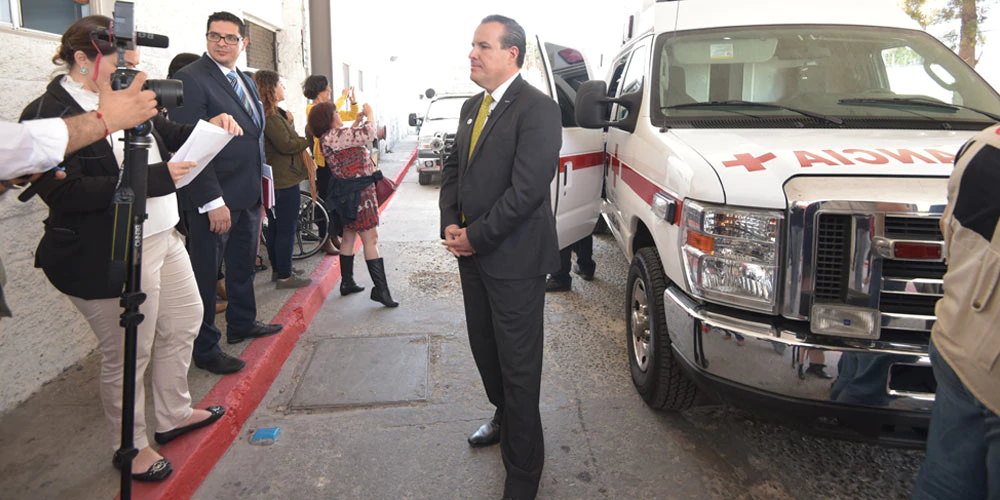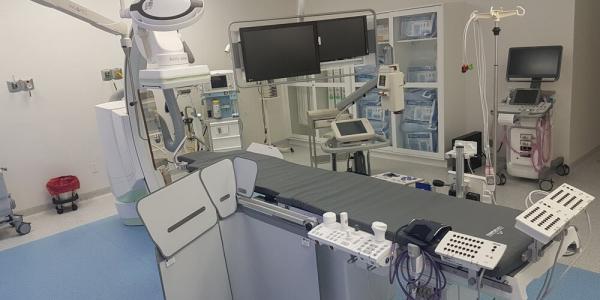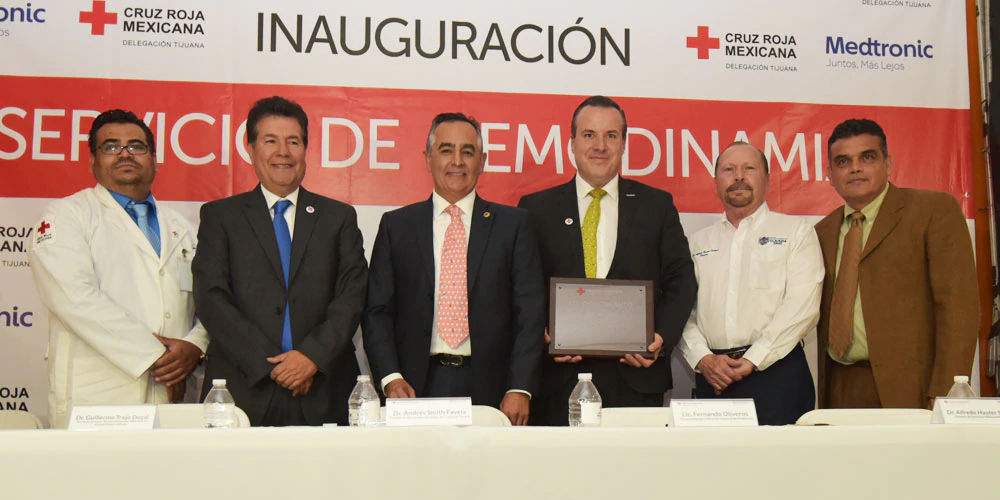Medtronic and the Red Cross of Mexico
Collaboration provides timely, advanced care to critically ill patients in Tijuana.
June 15, 2018 – The border region between the United States and Mexico is home to an underserved patient population, with very low rates of insurance.1 In Tijuana, where more than 1.6 million people live, the Red Cross fields 98 percent of the area’s 911 emergency calls. Approximately 3,000 of those calls, annually, are related to brain and heart disease. To better serve these patients, Medtronic and the Red Cross of Mexico — Tijuana delegation — recently opened a new state-of-the-art catheterization (cath) lab and introduced advanced cardiac care protocol, Alerta Cardíaca (Cardiac Alert).
In Tijuana … the Red Cross fields 98 percent of the area’s 911 emergency calls. Approximately 3,000 of those calls, annually, are related to brain and heart disease.
Cardiac Alert protocol begins treating the patients the moment they dial 911. The emergency call activates a multidisciplinary team that transmits an EKG to a cardiologist’s cell phone, so when the patient arrives at the Red Cross cath lab, there is already a diagnosis and course of action determined. Thirteen ambulances are now equipped with Cardiac Alert, and 120 paramedics and 13 staff members are trained in the protocol.
Cardiac Alert protocol begins treating the patient the moment they dial 911.
Dr. Andrés Smith Favela, president of the board of the Red Cross Tijuana, says the goal is to reduce the time it takes to diagnose a patient to one hour — the international standard. “This is a breakthrough, not just for Mexico but for all Latin American countries,” said Smith. “This project will start to grow in other institutions like the Red Cross.”
The new cath lab space can also be used to treat patients experiencing peripheral vascular disease, diabetic foot, venous insufficiency, and mesenteric ischemia. The Mexican Red Cross in Tijuana expects to treat more than 1,000 patients per year and eventually build a thrombectomy center of excellence.
According to John McCarthy, Medtronic vice president of Integrated Health Solutions Americas region, the partnership between the Red Cross and Medtronic provides access to high-quality care at an affordable cost. “Medtronic is in a very good position to help the Red Cross achieve its goals, by investing in the infrastructure and bringing added expertise in the delivery of care,” says McCarthy.
Medtronic Integrated Health Solutions is committed to expanding these kinds of collaborations globally, providing innovative solutions that can lead to more sustainable healthcare models.
For more on how Medtronic is driving value and improved patient outcomes, click here.
1Anaya, Gabriel.“Effect of the US-Mexico border region in cardiovascular mortality: ecological time trend analysis of Mexican border and non-border municipalities from 1998 to 2012” https://www.ncbi.nlm.nih.gov/pmc/articles/PMC5420111/#CR3


